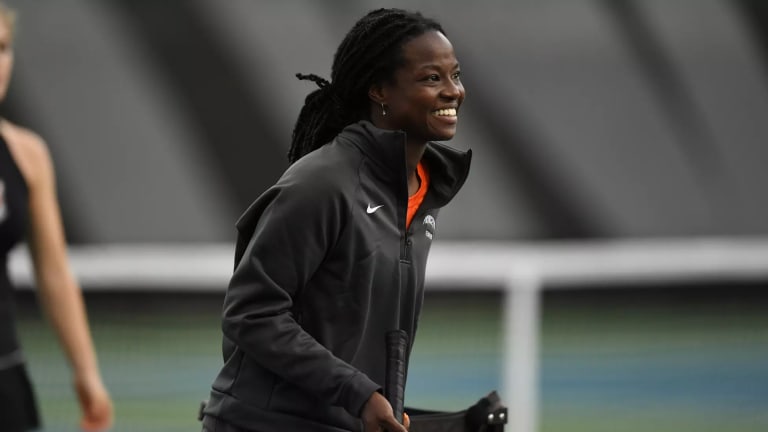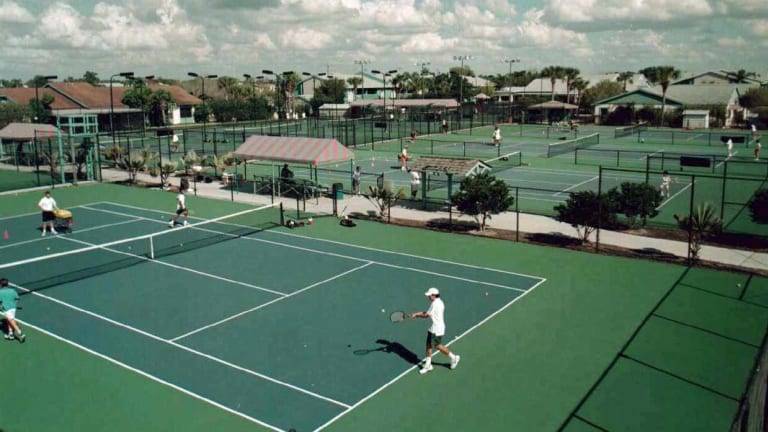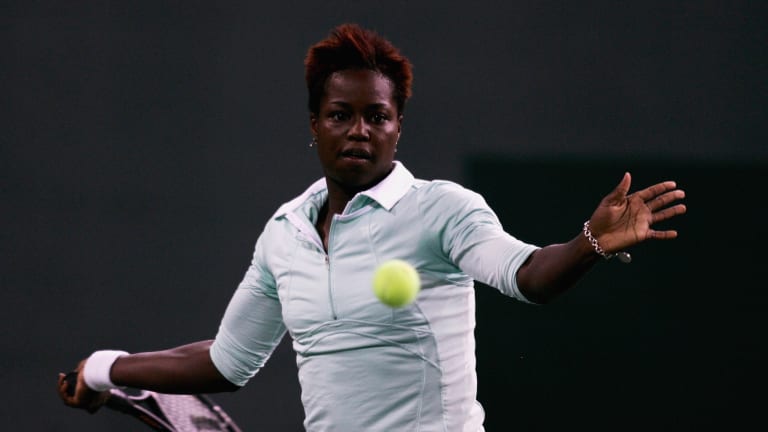The temperatures reached the mid-90s in Central Florida in recent days, as the nation’s best college players took the courts for the NCAA Championships in Lake Nona. Once upon a time, that wouldn’t have fazed Atlanta native and longtime Floridian Jamea Jackson. She spent a good part of her youth under that same sun, grinding through the famously frenetic workouts at the Bollettieri (now IMG) Academy in Bradenton.
But that was before Jackson took over as the head coach of the women’s tennis team at Princeton last August. A winter spent in (relatively) chilly New Jersey had taken its toll on her tolerance for high temps and heavy humidity.
“We have to go out and play in this heat!” Jackson said of herself and two of her Princeton players, who were getting ready for the individual events this week. “I guess I need to readjust,” she added with a laugh.


